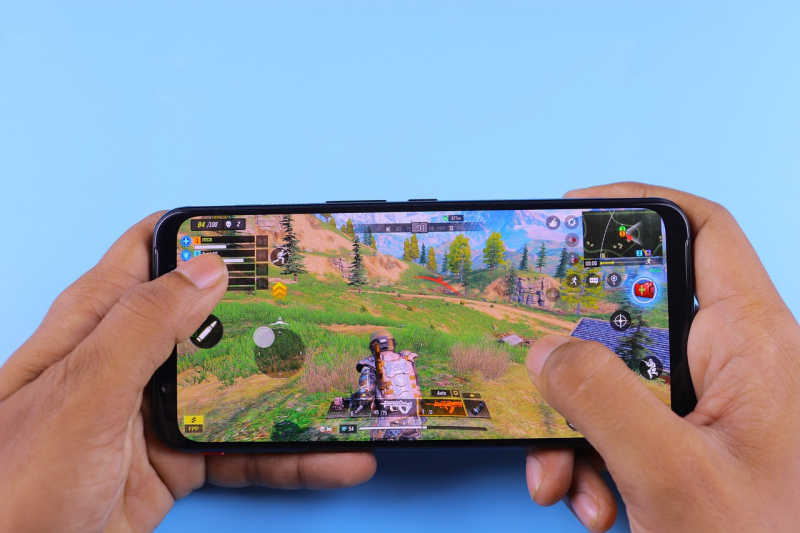Life Lessons From Your Pocket: 5 Mobile Games That Teach You Life Skills
October 24, 2023

Mobile games go beyond simple amusement and actually have lessons to teach us. These games can help us develop essential life skills such as problem-solving, strategic thinking, time management, and even emotional intelligence. Here are our top picks for mobile games that offer more than just entertainment - they come with a side serving of life skills too.
1. Minecraft

First on our list is the popular game Minecraft. This open-world sandbox game is more than just about breaking and placing blocks. It allows players to build and create their own virtual landscapes and environments using three-dimensional blocks. From simple homes to grand castles, the possibilities in Minecraft are endless.
Gameplay and Setting
In Minecraft, players are dropped into a massive world made of blocks. Players can mine these blocks and place them elsewhere, enabling them to build things. The game includes a day-night cycle, with dangerous creatures like zombies and spiders appearing at night. Players can also explore different terrains like forests, mountains, and bodies of water.
Pros:
- Encourages creativity and imagination
- Develops problem-solving skills
- Teaches resource management and planning
Cons:
- It can be too complex for younger players
- Some parents may disapprove of the monster-fighting elements
- It can become quite addictive
2. Monument Valley

Next up is Monument Valley, a beautifully designed puzzle game that requires players to manipulate impossible architecture and guide a silent princess through a stunningly beautiful world.
Gameplay and Setting
Monument Valley is a game of perception. Players are tasked with manipulating complex architectural structures to provide a clear path for the princess. Each level features unique and intricate designs that challenge and mesmerize the player.
Pros:
- Develops spatial awareness and critical thinking
- Stunning visuals and sound design
- Simple, easy-to-understand controls
Cons:
- Relatively short gameplay
- Can be too easy for experienced gamers
- Does not have a lot of replay value
3. Duolingo

While not a traditional game, Duolingo definitely deserves a spot on this list. This language-learning app turns the process of learning a new language into a fun and engaging game.
Gameplay and Setting
Players start by choosing a language they want to learn. From there, Duolingo uses mini-games, quizzes, and rewards to help players learn and retain vocabulary, grammar, and pronunciation. The more you play, the more you learn.
Pros:
- Transforms learning into a fun game
- Offers a wide variety of languages
- Tracks progress and adapts to your learning style
Cons:
- Doesn't provide in-depth cultural context
- Requires consistent usage for best results
- Can be too repetitive for some players
4. Stardew Valley
.jpg)
Stardew Valley is an open-ended country-life RPG game that immerses players in the life of a farmer. This game is a fantastic tool for teaching resource management and planning.
Gameplay and Setting
In Stardew Valley, players inherit an old farm from their grandfather and are tasked with transforming it into a thriving agricultural enterprise. The game involves planting and harvesting crops, raising animals, mining for ores, and engaging with the local community.
Pros:
- Teaches time and resource management
- Encourages strategic planning and foresight
- Relaxing and immersive gameplay
Cons:
- Can be slow-paced and time-consuming
- Can feel repetitive over time
- Lack of clear instructions can lead to confusion
5. Lifeline

Lastly, we have Lifeline – a mobile game that combines science fiction and interactive storytelling to create a unique, real-time experience. This game puts players directly in the action, teaching them the importance of decision-making and dealing with consequences.
Gameplay and Setting
In Lifeline, players help a stranded astronaut named Taylor make critical decisions in order to survive. The game unfolds in real-time, meaning Taylor responds to players' decisions at certain intervals throughout the day.
Pros:
- Develops decision-making skills
- Teaches players to deal with the consequences of their actions
- Compelling and immersive story
Cons:
- Slow-paced gameplay may not appeal to everyone
- Requires constant attention due to real-time aspect
- Some scenarios can feel repetitive
In conclusion, mobile games are more than just a source of entertainment – they can be educational tools that teach us valuable life skills. The games listed above are perfect examples of how gaming and learning can go hand-in-hand. So, why not give them a try? You might just pick up a new skill or two.








Leave a comment
Your comment is awaiting moderation. We save your draft here
0 Comments